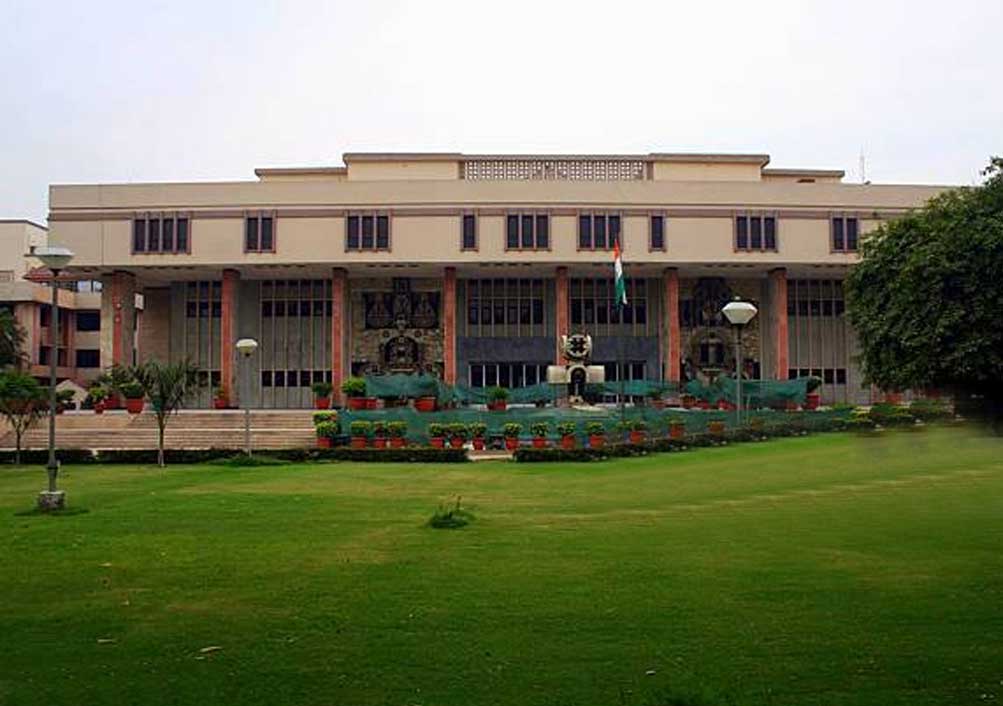Under Hindu Marriage Act, relief of divorce can be between husband and wife only and cannot extend to third party,clarifies Apex Court

Read Judgment: Nitaben Dinesh Patel vs. Dinesh Dahyabhai Patel
Pankaj Bajpai
New Delhi, October 13, 2021: The Supreme Court has held that the relief of divorce or judicial separation can be between the husband and the wife only and cannot extend to the third party under the provisions of the Hindu Marriage Act.
Therefore, by virtue of Section 23A of the Hindu Marriage Act, it is not open for the appellant-wife to seek declaration to the effect that the marriage between the respondent-husband and the third party (Hinaben Manubhai Panchal) is void, added the Court.
A Division Bench of Justice M.R. Shah and Justice A.S. Bopanna therefore observed that by way of counter claim in any proceedings for divorce or judicial separation or restitution of conjugal rights, one can pray for the relief by way of counter claim only those reliefs which can be prayed and/or granted under the Hindu Marriage Act.
Going by the background of the case, the appellant-wife and respondent-husband filed a petition seeking dissolution of marriage. However, later, the appellant sought amendments to her written statements seeking, inter alia (i) that respondent-husband is living in adultery and (ii) that a subsequent marriage between respondent and third party be declared void and that child born of that wedlock be declared an illegitimate child.
The Family Court partly allowed the application permitting the appellant-wife to amend the written statement so to include the factum of respondent-husband’s second marriage but refused permission to amend the written statement to seek relief against a third party.
On appeal, the High Court dismissed the appellant’s plea to amend written statements in both instances on the ground that once a written statement is filed and the trial has commenced, application to amend the written statement in exercise of powers under Order VI Rule 17 CPC is not required to be entertained.
After considering the submissions, the Top Court observed that no relief can be prayed by way of counter claim even against ‘Dev’, the son born out of the alleged wedlock between the respondent (original plaintiff) and the third party (Hinaben Manubhai Panchal).
In such a situation, the only remedy available to the appellant would be to file a substantive suit and/or initiate independent proceedings claiming such reliefs, but such reliefs cannot be claimed by way of counter claim u/s 23A of the Hindu Marriage Act in the petition for divorce filed by the respondent herein against the appellant, added the Court.
The Division Bench stated that the appellant can by way of counter claim could have claimed the relief and prayed for divorce and/or judicial separation on the ground of husband’s adultery.
However, beyond that, no relief which cannot be granted under the provisions of the Hindu Marriage Act can be claimed by way of counter claim, added the Bench.
“On a fair reading of Section 23A of the Hindu Marriage Act, the respondent in any proceedings for divorce or judicial separation or restitution of conjugal rights, may not only oppose the relief sought on the ground of adultery, cruelty or desertion, but also make a counter- claim for any relief under Hindu Marriage Act, i.e, on the ground of petitioner’s adultery, cruelty or desertion and if the petitioner’s adultery, cruelty or desertion is proved, the court may give to the respondent any relief under Hindu Marriage Act to which he or she would have been entitled if he or she had presented a petition seeking such relief on that ground”, observed the Top Court.
Therefore, while partly allowing the appeal, the Apex Court restored the order passed by the Family Court.
Sign up for our weekly newsletter to stay up to date on our product, events featured blog, special offer and all of the exciting things that take place here at Legitquest.




Add a Comment